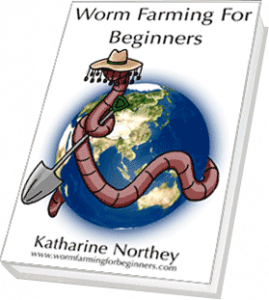Vermicompost/ vermicomposting.
What is vermi-compost?
– Vermi-compost is the end product from composting with worms.
– Vermi-compost contains castings, broken down organic matter, bedding, worms, worm cocoons, and other organisms.- (Nancarrow 98).
Vermi-compost is a intensely rich & micro bacteria loaded product that earthworms & compost worms excrete when they digest their food .
Vermicomposting utilises composting worms to convert organic wastes into high quality compost. This is one of the way s of composting kitchen scraps into a valued garden media.
Many gardeners use vermicomposting systems for all their garden and kitchen waste, reducing their garbage by up to a third and providing their own organic fertiliser for gardens on verandas and rooftops to grow their own organic produce.
Castings contain:
– A neutral pH of 7 no matter what the diet of the worm.
– (“If you are looking for worms, you are in the right place!” http://members.tripod.com/-wormigrow/)
– Beneficial bacteria, plant growth hormones, vitamins, enzymes, amino acids, selenium, organic carbon.
– 5 times the available nitrogen, 7 times the available potash, and 1 1/2 times the available calcium than found in good top soil. (“Earthworms as a natural resource” Chapman, Ingrid.)
– Humic acid: which is a beneficial fungal activator.
– Fulvic acid: which is a beneficial bacteria activator.
– Auxins: which is an organic substance characterised by its ability to promote growth, particularly in roots. It is an active ingredient in
rooting compounds.
– Not a single trace of E.coli, salmonella or other pathogens as they are destroyed due to the competition from the active micro
flora and intestinal secretions. Most of our human pathogens are anaerobic and cannot survive in the aerobic environment created by worms.
There’s nothing better to put in your garden!
For ALL the information you need to know about vermin-composting simply purchase:
Worm Farming for Beginners.
Red Wiggler Worms / Red Worms.
Generally the worms used for composting are called red worms:
Eisenia Andrei/fetida or Lumbricus rubellis. These worms are ideal for composting as they are ferocious eaters, surface dwellers and prolific breeders.They love to live in close, highly populated environments and don’t burrow deeply into their housing structures. If you hear the term “red wigglers or Red Worms” you know your purchasing the right type of worm. There are other types of worms that can be used:
– African night crawlers: Eudrilus eugenia, but as the name suggests, if they’re not happy they WILL crawl away in the night.
– Gardeners friend worms: Amynthus gracious/corticus.
– Tiger worms: Eisenia fetida.
– Blues: Perionix excavatus/spenceralia.
Garden earthworms are not suitable for composting so please leave them be in the garden so as they may tunnel deeper down in the soil to help the garden.
Red wiggler worms can process large amounts of organic matter and under perfect situations can eat their body weight each day. They also reproduce rapidly and are tougher and quicker breeders. Than other types of composting worms.
Red wigglers can be used for feeding other “pets” as well:
Feeding ;
- Pet Birds
- Turtles
- Iguanas
- Aquarium Fish
- Pond Fish
- Salamanders
- Snakes
- Frogs
For more information and practical advice/tips on how to care raise Red wigglers/Red Worms-
Check out my new book! Worm Farming for Beginners.
Ideal for all worm farmers out there! You’ll never need to visit a website for information again!!
Raising Worms.
When thinking of “raising Worms”, composting worms are one the easiest types. Red wigglers are one of the most accessible varieties to find as most hardware store now stock them. These are the type of worm that you can take home and start feeding your vegetable scraps too. The most common problems people have with raising worms is that they either: feed the worms too much or , keep the worm farm too wet.
Throughout my book “Worm Farming for Beginners” you will find the do’s and don’ts of beginner worm farming. Check out the contents page below:
Contents
5 – Nature’s Friend Poem
8 – Why Have a Worm Farm
13 – What is a Worm
16 – The Framework of a Worm
18 – How Worms Reproduce
20 – How Worms Breathe
20 – How Worms Move
21 – How Worms Eat
22 – Different Housing Structures
24 – Bedding Material
26 – Bathtub Worm Farm
30 – Garden Bed Worm Farm
34 – Styrofoam Box Worm Farm
38 – Garbage Can Worm Farm
43 – What to Feed the Worms
45 – How to Feed the Worms
46 – Herbs for the Worm Farm
48 – Castings, Vermicast and Worm Juice
49 – Harvesting the Worms, Vermi-Compost and Juice
50 – Using the Vermi-Compost and Juice
52 – General Info
54 – Whats Wrong with the Worm Farm (FAQ)
60 – The Land Beneath Our Feet Poem
62 – Wiggly Jokes
64 – Games
72 – Colour Me In
74 – Game Answers
79 – Notes and Observations
85 – Bibliography and Recommended Reading
86 – Glossary
90 – Index
By the end of reading this book you’ll never have to find a website like mine again!!
Happy Worm Farming!!


